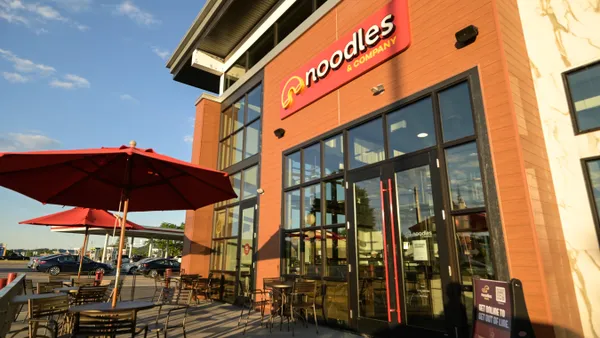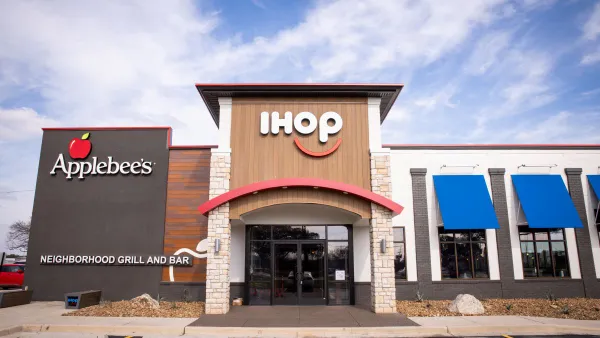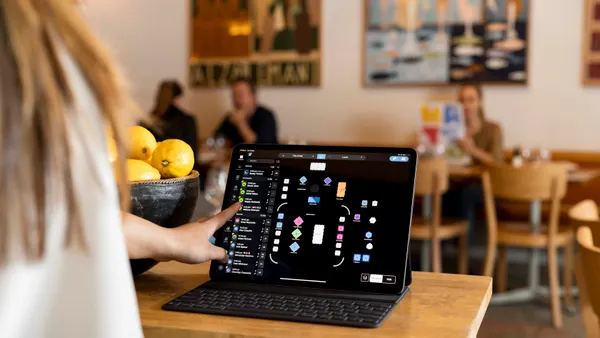Guests seated at your restaurant table or sports bar have already made the commitment to buy a drink, appetizer, or meal. But they’ll leave once they’ve finished eating– unless they have reason to stay to order that extra drink or dessert. Providing valuable entertainment content gives guests a reason to stay and encourages them to enjoy more food and drink.
“When there’s good entertainment and good experiences, check averages go up,” said Dave Dittenber, President of Downtown Restaurant Investments and CEO of BYOD (Bring Your Own Data). But savvy restaurateurs can’t just leave success to chance, he said. In addition to providing great customer service, and delicious food and drinks, restaurant leaders must have strategies to entertain and provide exceptional experiences.
Here are three winning ways to create an entertaining environment that makes customers want to come, stay and enjoy.
1. Be intentional with entertainment. Don’t just “set it and forget it.” For many eating establishments, football is a significant draw. Last year, 200 million people tuned in for the Super Bowl, and NFL viewership this year is growing. But getting people to stay requires more than just turning to a channel and letting the games air, explained Jim Grandahl, Director, National Accounts, DIRECTV.
Introduce thoughtful ways to interrupt the natural pauses when guests are likely to leave, Grandahl said. “The game is over on the East Coast, but there are still 30 minutes left in the West Coast game. So rather than staying on the same channel to watch reruns of earlier games, flip to something new. During the NBA season, when the Celtics game is over, flip to the last half of the Warriors game.” This is also an ideal time for servers to stop by to suggest new orders.
By keeping the excitement going, guests are more likely to want another round of apps while they watch one more game.
2. Read the room: Adjust to your guests to effectively establish your entertainment flow. Not everyone comes in to watch football– but they still want an outstanding experience. Grandahl said that a simple tactic to manage guests is to ask, “‘What brought you in today?’ If guests want to watch a game, steer them to the bar, near the televisions.” In contrast, if they want to celebrate a birthday dinner, steer them to the booths where the noise level is more conducive for conversation.
As you read the room, consider the entertainment content that is airing. If it’s a weekday afternoon, is the content family-friendly? A stream of news, movies, or music best suited for adults might not be appropriate for the after-school crowd.
Instead, use your full toolbox of entertainment to keep energy levels high throughout the day, even if major sports events aren’t scheduled, Grandahl suggested. Trivia and other game shows or music channels through DIRECTV FOR BUSINESS packages can engage customers and maintain a fun vibe.
3. Identify and respond to the interests of your guests. When people come to watch a game, they may be die-hard fans. Or they may be visiting from out of town, looking for a friendly environment while they cheer on their home team.
Dittenber added that in the last ten years, people who might not usually follow football now watch to support the player in their Fantasy Football League. Restaurants can create opportunities to build a base where sub-groups of fans can gather. “Some of these individual games might not have as many people invested in them,” Dittenber said. “But ultimately you’re building up to that nationally televised Sunday night game. Maybe you can create something that starts earlier in the day that is tied to Fantasy Football, so people ultimately stay longer.”
Your customers may be interested in watching a sport besides football. Big events, like the World Cup and the Olympics, draw new patrons. But you don’t have to wait four years to host events. “International programs, like soccer, have loyal fans,” Grandahl said. “If you walk into an Irish Pub in New York City on a Saturday at 10 a.m., there are people sitting at the bar watching live soccer. They go to that Irish Pub because they know that Manchester City or Liverpool will be on.”
By understanding your customers, you can identify new ways to leverage the breadth of services you offer in ways they will appreciate.
With customer-centric strategies and a toolbox of entertainment options, you can build a dynamic environment for your restaurant that invites your guests to come and stay for a while.










